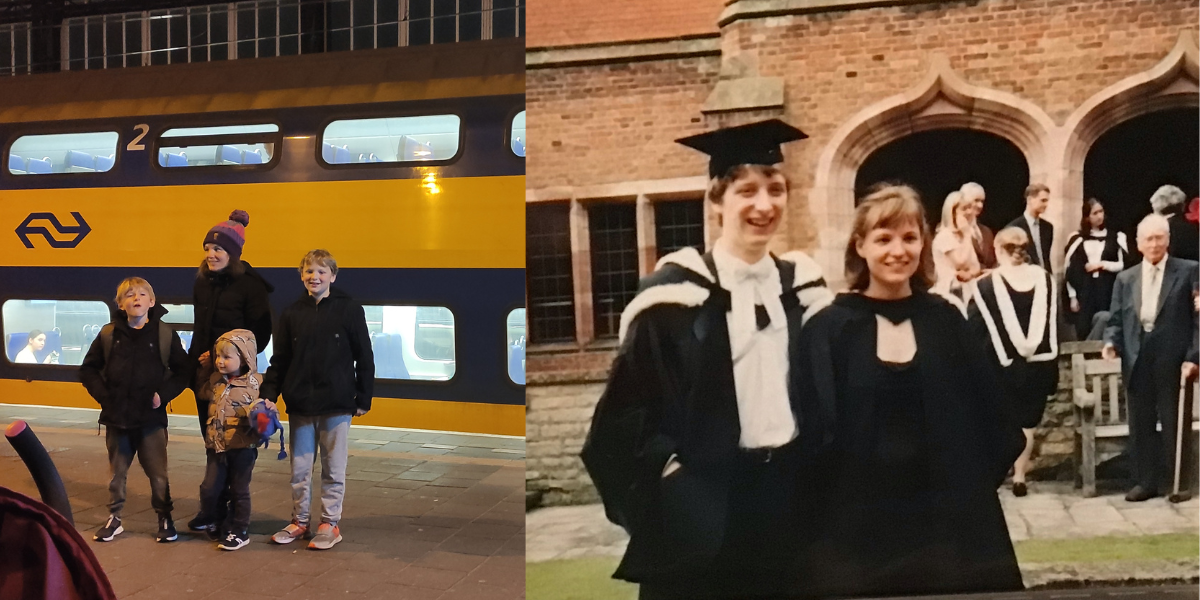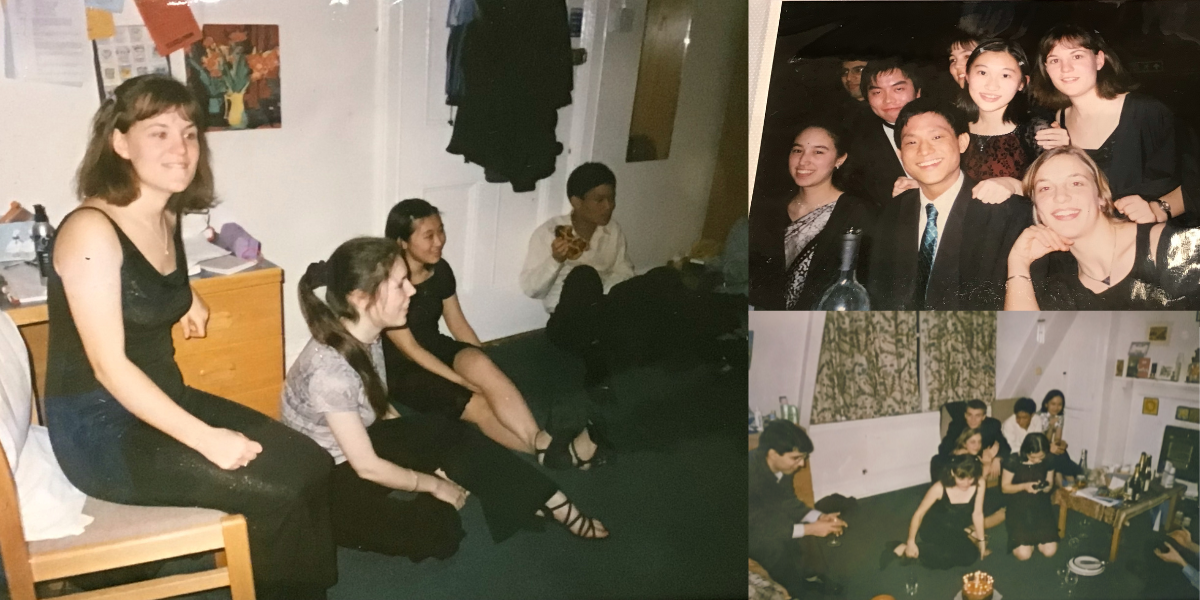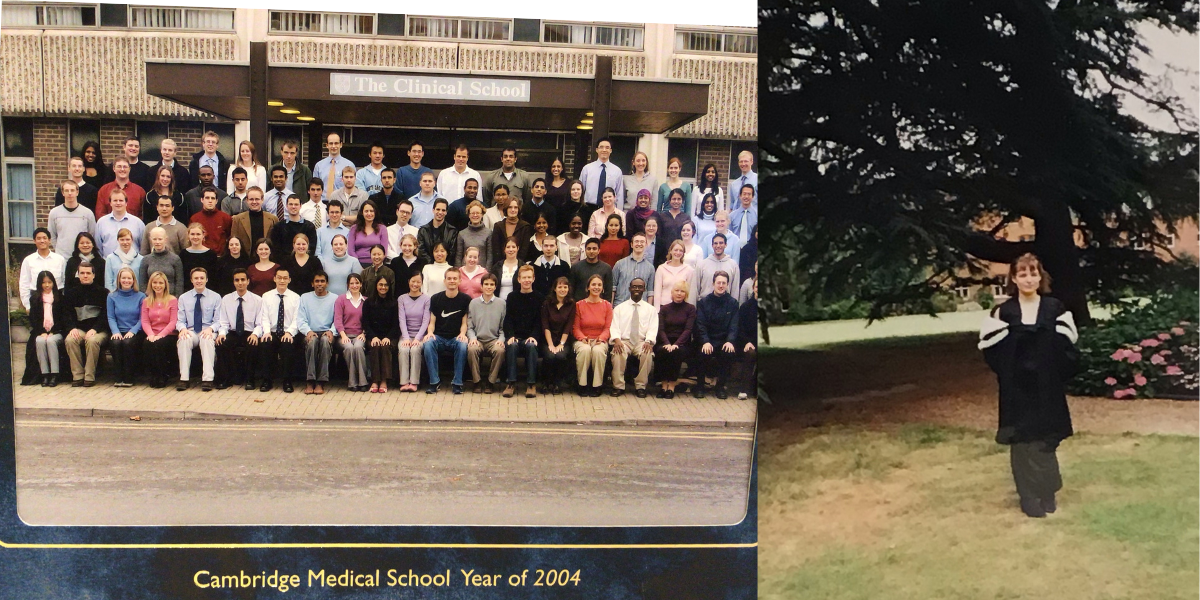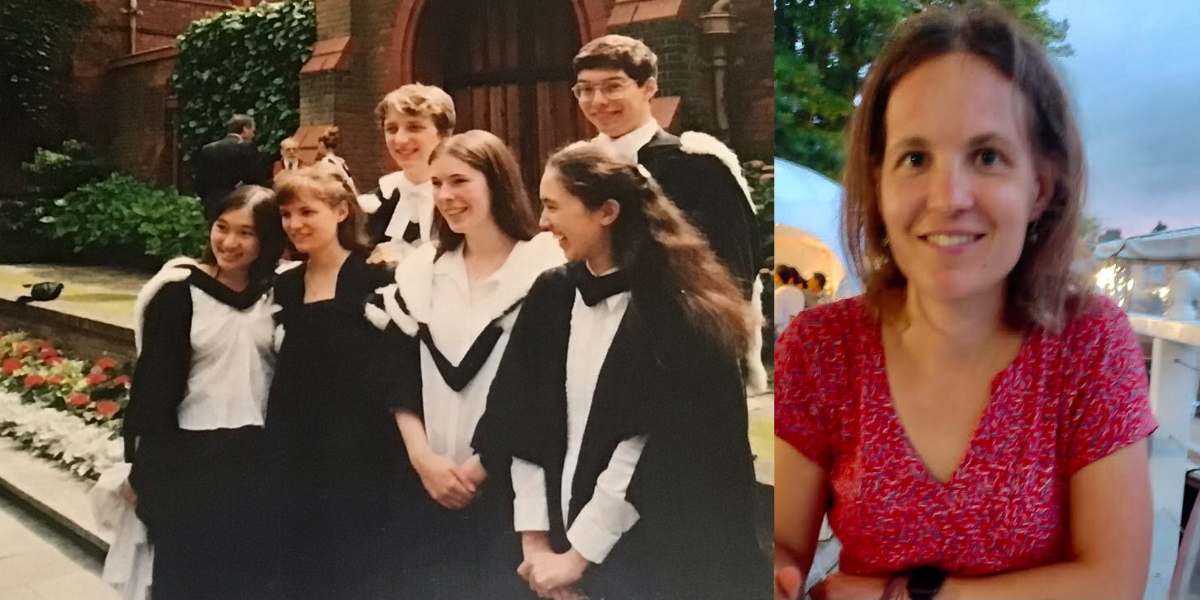Managing mental health - Mei Simmons
Mei Simmons (Girton 1999), studied Medicine at Cambridge, but was among the few in her cohort who was interested in mental health. Now, as a consultant child & adolescent psychiatrist and author, her passion for helping young people is stronger than ever.
“I was one of the few people in my whole year of well over 100 people who did psychiatry! My peers mostly seemed interested in surgery and different aspects of hospital medicine like cardiology.” Thinking back to her time at Cambridge, Mei remembers mental health being one of the least popular aspects of the medicine degree.
But for Mei, it was captivating. “It just felt like a totally different side to medicine, and I really enjoyed it. I loved the fact that we had much longer to spend with the patients and their families, and we could help them navigate the various challenges they faced in every aspect of their lives from improving their health to managing their work and relationships, as mental illness can impact on all areas of functioning.”
Mei had some inspirational mentors that maintain her interest in mental health following her clinical experiences, but she nevertheless remembers the heavy stigma attached to this area of medicine. “Partly because of the way institutions were set up in those days, patients used to stay on the mental health wards for a long time, and I think people were sometimes worried about spending time with those who were mentally unwell.”
“People come to Cambridge expecting a very heavy workload, with little free time and space for hobbies. But for me, the extracurricular activities on offer provided a necessary mental break."
In order to provide herself with space from her studies, Mei threw herself into extracurricular activities at her College and beyond. “Girton has its own pool, so I was lucky enough to be able to swim quite a bit. I joined the Girton girls’ football team and the Med School football team, and even though I wasn't very good, I really enjoyed it. I also did quite a lot of music– I was part of the West Cambridge Symphony Orchestra, which was more about having fun than high-level practice, which suited me really well.”
“As well as making a lovely group of friends from a wide range of subjects and backgrounds, I also met my husband in College. He was doing computer science, and we got together towards the end of our first year at Cambridge. We've now been together over twenty years and have three children together!”
“For me, extracurricular activities provided a necessary mental break, because medicine in those days was very science-heavy and involved a lot of rote learning. In fact, this was partly what drove me to get more interested in medical education. I realised then that people learn in all kinds of different ways, and I had to figure out my own creative ways of getting through pure science work when I really wanted to understand how to be a good doctor.”
“In medical training, some people have got photographic memories and rote learning comes easily to them. Other people are skilled writers, and find the essays much easier. Some, like me, find they’re most suited to the ‘apprenticeship’ part of a medical degree, learning from doctors on the wards, which is totally different from lab work and lectures. For me, all of this spurred an interest in how we learn and different learning styles, which I developed further through doing a MA in Medical Education during my psychiatry training.”
Dedicated to her new-found passion for mental health, Mei stayed in Cambridge once she’d finished med school to do her specialist training rotations, and as a junior psychiatry trainee she co-founded the Cambridge University Psychiatry Society.
“I was on the Psychiatric Trainees Committee which is based at the Royal College of Psychiatrists, where you represent all of the trainees in your region. We did several interesting projects there looking at different aspects of education and training. There was a group of us that set up psychiatry societies in our medical schools. The first event I organised was a careers speed dating event. Most medical students had no idea about all the different psychiatry specialties, so I brought in consultants working in different areas of psychiatry to meet with the students for a few minutes at a time. I also set up workshops about mental health in local schools, given by medical students, which we received some fantastic feedback for.”
Her role today
Nowadays, Mei is a consultant child and adolescent psychiatrist, working in the Oxfordshire Outreach Team whose work covers the whole county.
“When I first became a consultant around 2015, I worked in the general mental health team and saw everything that came through the door from depression to anxiety, to autism and ADHD. Eighteen months ago, I moved to work with the ‘Outreach service’ where it’s really much more about working with stuck young people with complex mental health problems who struggle to engage with outpatient services. Often they have quite severe levels of autism as well as OCD and anxiety. We’re very community based; we go out to see people in the homes and work with families, because often young people struggle to come to us. Much of our work is also multi-agency, so working with education and social care colleagues is crucial to make sure that young people are as supported as possible.”
I ask Mei what she enjoys about most about her role.
“I love my job” she replies, without hesitation. “I love seeing positive changes in children and young people who are really struggling to function. We can often find ways to help them to improve their function in some way. Some of them may not have left the house or hardly spoken for long periods of time. If we can somehow find ways to support them and their families move forwards, it can really alter the course of their lives. In my experience, in adult mental health services, change is often harder to come by, whereas if you work with children and young people, you can really help a whole family get their lives back on track.”
“Of course, it can be so challenging to see children in distress, especially when it takes a while for things to change due to difficulties in systems that you can't influence. For example, a child who needs a bespoke educational package to manage at home, but we come up against a holdup in the education system or in the social care system. It can be really frustrating. Emotionally it can also be quite intense, especially when you work with young people who are suicidal or self-harming. So you need to have your own ways of managing that, which I've developed over the years.”
How does Mei maintain her own mental health and wellbeing?
“As well as being an avid reader and writer, I've always been someone that loves the outdoors. I love going out in nature with family, taking my children out for walks and going on adventures. Since I was a teenager, I've been into running too - because you just put your running shoes on and go. Just getting out and running when I can helps me process things.”
Mental health being one of the least popular choices among Mei’s undergraduate cohort reflects one of the major recruitment difficulties in mental health services. Mei notes how things are “gradually changing”, but that it is still very difficult to recruit into.
I ask Mei what advice she has for young people interested in careers involving mental health.
“I think there's so much need for people to come and work in mental health services, and it’s important for people to know that apart from through medicine, there are many other opportunities for careers in the allied health professions. In my team, as well as psychiatrists, we've got nurses, social workers, family therapists, psychologists, occupational therapists and support workers. There is also a variety of types of work in a huge range of settings. Some people might work in the cutting-edge crisis assessment units, but other people might be involved with longer term work with people with learning disabilities. There's something for everyone and you can develop a huge range of transferable skills. And it’s one of those very satisfying careers where you feel as though you're really making a difference.”
“There’s something very calming about being near water or the woods. When I lived in Cambridge I had a flat that overlooked the meadows, down by Newmarket Road. I used to love escaping to the river whenever I had the chance; walking, running and having picnics.”
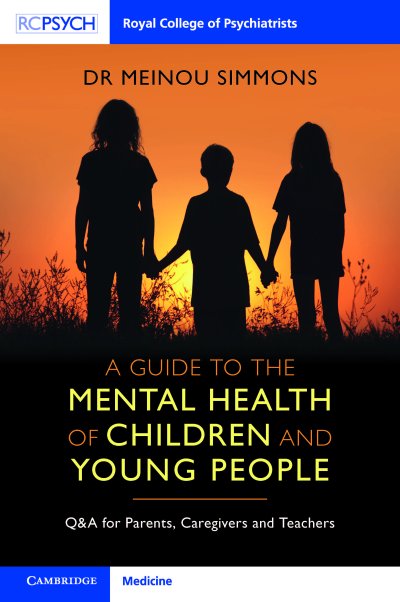
A Guide to the Mental Health of Children and Young People: Q and A for Parents, Caregivers and Teachers
"Mental health is a core part of our overall health, and difficulties with mental health can have a huge impact on our everyday functioning. Around 1 in 6 school-aged children and young people have a probable mental health disorder; this rises to around 1 in 4 in late teens. Even those who don’t have diagnosed problem may struggle with mental health difficulties along the way. Given the length of NHS waitlists and the lack of funding available in this area, parents and families are left with unanswered questions and without support and guidance", says Mei.
"Understanding more about what impacts our mental health and what we can do if children and young people experience mental health difficulties can help us feel more in control, and help us know where to turn if we need guidance." Mei’s book, A Guide to the Mental Health of Children and Young People: Q and A for Parents, Caregivers and Teachers, aims to empower caregiving adults to understand more about how to support young people in their lives with their mental health, and signposts the reader to reliable resources.
The first part of the book covers the biological and lifestyle factors that impact on mental health, including advice on sleep, nutrition, exercise and technology. Next, the book explains how to strengthen relationships with children and young people, which will alter throughout their development. Finally, Mei explains several common mental health difficulties and disorders, from mood and anxiety difficulties to eating difficulties and neurodevelopmental conditions like autism, with some real-life case examples. The book aims to be an accessible guide that can be dipped into, rather than one that needs to be read cover to cover.

